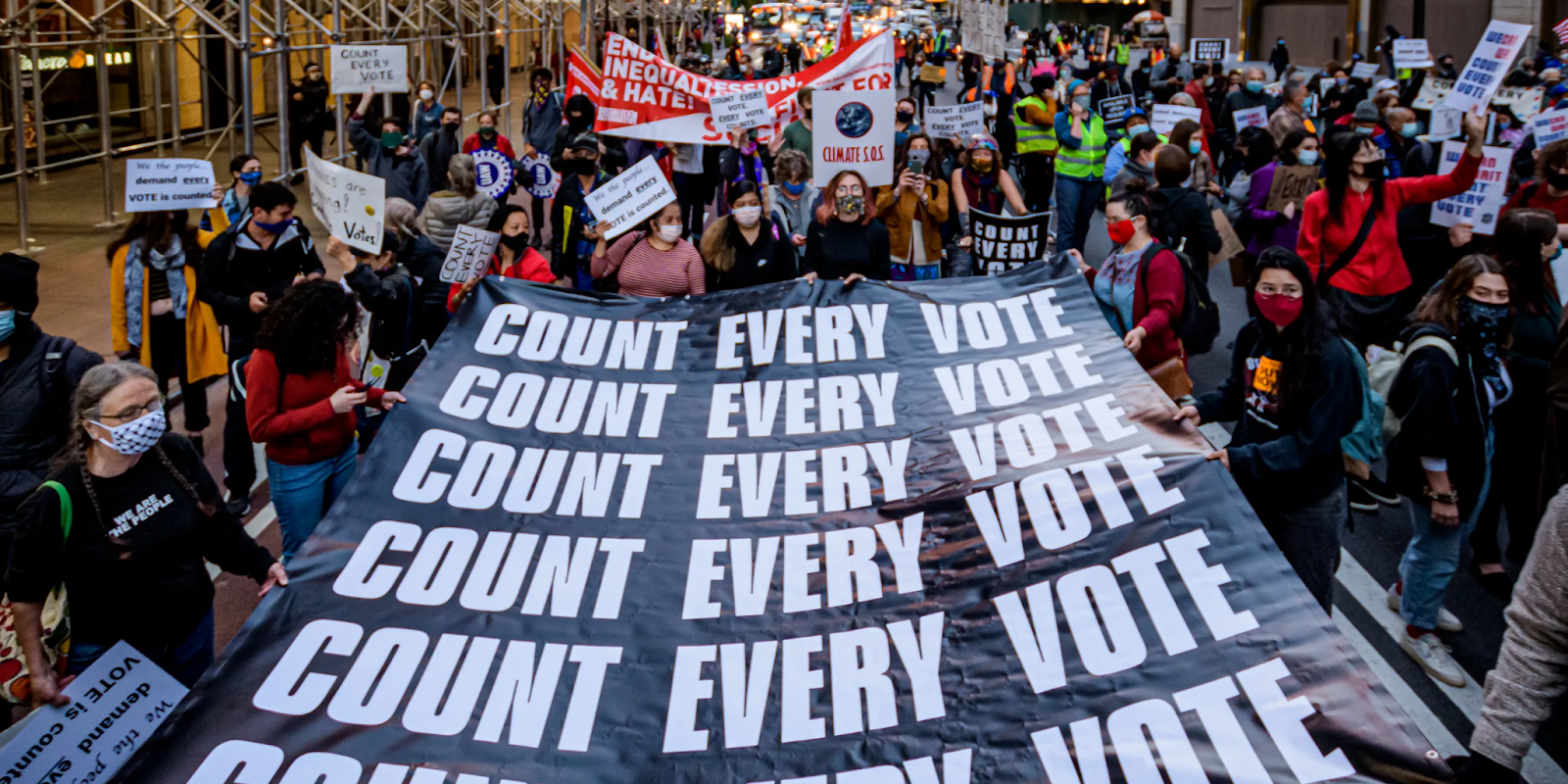The 2020 Presidential election was unprecedented in a lot of ways. The way we voted was very different from how we usually do: more of us voted than ever before; Georgia went blue for the first time in decades, due largely to get-out-the-vote efforts led by women of color in the state. Miraculously, however, we did not see unprecedented fraud or international interference as so many feared we would. Despite the security and success of the voting process, Republican media and politicians attempted for months following Election Day to convince Americans that it was neither successful nor secure. This lingering skepticism seems to have motivated a slew of so-called voter suppression laws, even as Democrats attempt to push an important election reform bill through the Senate.
Voter suppression is nothing new. Besides the obvious fact that the original Constitution allowed only landed white men to vote, the nation has a long history of disenfranchising voters of color through voter ID laws and poll taxes, the latter of which was made unconstitutional by the 24th Amendment in 1964. The next year, the landmark Voting Rights Act of 1965 was passed, which outlawed discriminatory voting practices like literacy tests. In 1971, the 26th Amendment lowered the voting age from 21 to 18, and the number of eligible voters continued to rise. The much more recent Shelby County v. Holder Supreme Court decision of 2013 stopped much of this progress in its tracks. A certain provision of the Voting Rights Act required certain districts to gain official authorization before changing any of their voting laws. The court decided in a 5-4 decision that the provision was outdated and unconstitutional. Within 24 hours of the ruling, states that had been subject to the provision, like Texas, Mississippi, and Alabama introduced photo ID laws that had previously been barred.
Recently, a slew of new voting laws have been proposed in 28 states, totaling 106 bills to restrict voting access. The bills primarily aim to “(1) limit mail voting access; (2) impose stricter voter ID requirements; (3) limit successful pro-voter registration policies; and (4) enable more aggressive voter roll purges.” Most of these bills are in response to the false narrative that the 2020 election was more fraudulent or less secure than past elections, when in reality there is no evidence of widespread voter fraud.
Some bills have gained a lot of attention, particularly Georgia’s sweeping elections bill. Understandably, liberal media has been very vocal about the bill. None of the bill’s provisions alone are egregiously oppressive, but altogether they are difficult to defend. The bill replaces signature matching with requiring voters to write their drivers license ID or to use a free photo ID. It limits the number and hours of operation of drop boxes around the state. It shortens the time period for voters to request an absentee ballot and shortens the time counties have to certify election results. One provision of the bill with potentially significant effects allows the Republican-majority General Assembly to elect three, instead of the previous two, voting members of the State Election Board. That number also now includes the chairperson, meaning the General Assembly has more power over elections overall.
The most talked-about portion of the bill is the ban on giving out food and water to voters waiting in line. Liberal media has been loud in its opposition to this provision, and perhaps they have some reason to be, but it really isn’t quite as harmful as many reports have made it seem. The bill does not ban poll workers from providing food and water, nor does it prevent voters from ordering food or bringing it with them. The naive part of me would like to believe that lawmakers were truly trying to make elections more fair with this provision, but the realist in me suspects ulterior motives.
Ultimately, no individual aspect of the bill is the end of Democracy as we know it. However, the concept of introducing a slew of new policies when the system had no substantial issues to begin with is troubling. The state handled increased voter turnout during a pandemic with the system it had, so it’s reasonable to doubt the legislators’ motivations. As Isaac Saul of Tangle writes, “It’s that sort of cumulative, ‘death by a thousand cuts’ change” that can ultimately make it harder for people, especially people of color, to vote.
It’s also impossible to ignore the fact that Republican lawmakers have been shameless about their partisan interests when it comes to voting rights, or lack thereof. Senator Lindsay Graham (R-SC) told Fox News that “if we don’t do something about voting by mail, we’re going to lose the ability to elect a Republican in this country.” He didn’t say that mail-in voting is less secure than voting in person, just that it’s bad for Republicans.
It’s difficult to imagine Republicans simply giving up on its crusade of voter suppression when they have such an obvious interest in limiting the number of people, especially people of color, who can vote. Maybe it’s easy for me to write this because I would love for Democrats to win more elections, especially in states like Georgia. Still, it seems obvious, but apparently it isn’t. The Republican Party should not attempt to change the electorate to match the party line; it should change the party line to fit its electorate. If more voters means that the Republican party loses elections, clearly the Republican Party isn’t aligned with the views of enough Americans.

